The vicious cycle of AI-generated misinformation being used by other AIs to spread misinformation is destroying the internet and creativity.

One of the problems arising with the development of AI is the reliability of content. Kurzgesagt, an educational YouTube channel, has summarized in a movie the current issues with the reliability of AI and the possibility that these issues will worsen until
AI Slop Is Killing Our Channel - YouTube
It is said that about half of modern internet traffic is bots. The proliferation of low-quality content, known as 'AI slobs,' such as AI-generated movies and books, is also a problem.
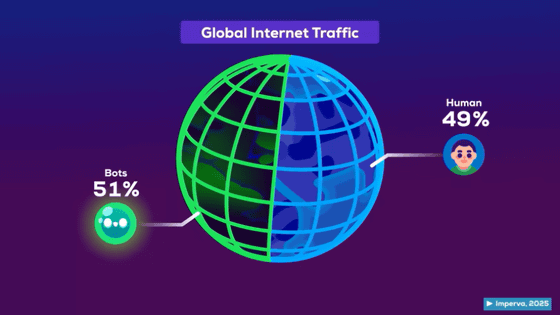
One example of low-quality AI content that is often criticized is the 'AI summaries' that appear in Google search results. AI summaries use AI models that prioritize speed over performance, which can result in inaccurate information. Some people have reported that when they searched for their own name, they were told that someone 'died 10 years ago,'
A Google AI profile created a false description of a person who had traveled to Israel and posted a controversial video, even though they had never been there - GIGAZINE

When creating academic content, Kurzgesagt begins with basic research, thoroughly fact-checks the collected information with two or three people, and finally receives opinions and criticism from several experts. Since fact-checking and source gathering alone takes 100 hours per movie, introducing AI to speed up information gathering could significantly reduce the process. However, when Kurzgesagt actually collected information using AI and then fact-checked it, he said, 'I didn't think it was perfect, but the misinformation was worse than I expected.'
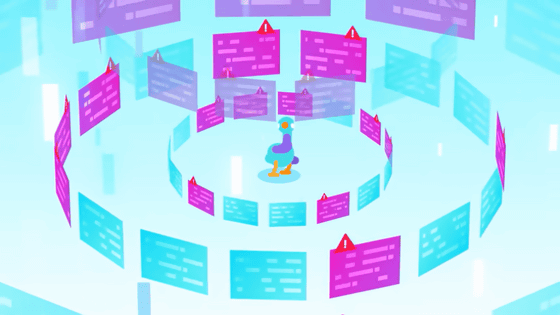
According to Kurzgesagt, when an AI research tool was used to create summaries and summaries of the necessary information on a certain topic, about 80% of the results included links to the information sources, and the summaries of the information sources were quite reliable. On the other hand, for the remaining 20% of the results, it was unclear where the AI found the information. Kurzgesagt describes it as 'AI inventing information to make the research topic more interesting in order to please us.'
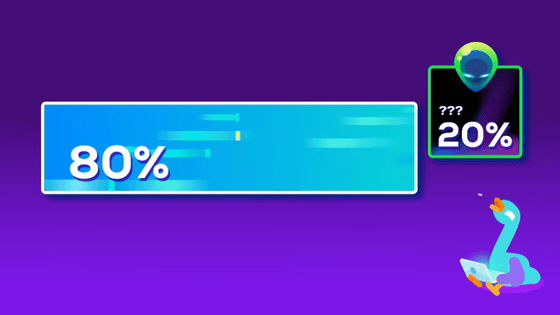
Kurzgesagt further dug deeper into the sources of the '80% reliable information with sources.' One news site article included in the study had a 72% match rate when using the 'AI essay detection tool.' In other words, a news site was publishing 'unsourced information' provided by AI without verifying it, and the AI that learned from that news was now presenting it as 'sourced information.' By 2025, more than 1,200 news sites and websites were found to be publishing misinformation and false stories generated by AI.
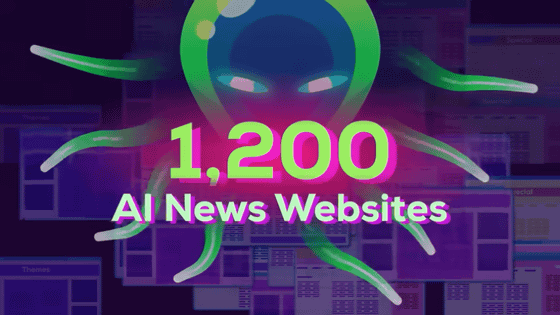
As AI becomes more widespread, it will become harder to distinguish between truth and misinformation. Kurzgesagt says, 'AI has the potential to irreversibly disrupt the internet.'
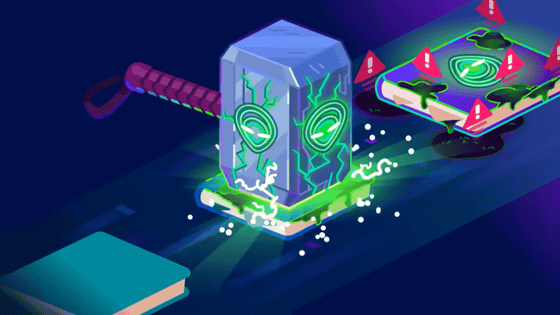
Related Posts:






